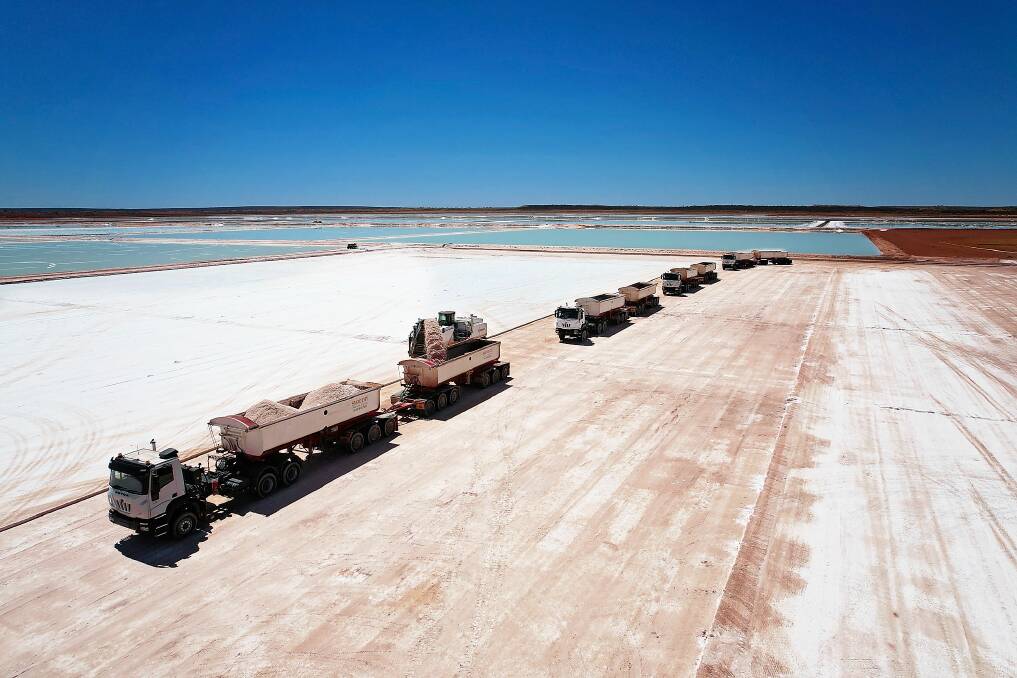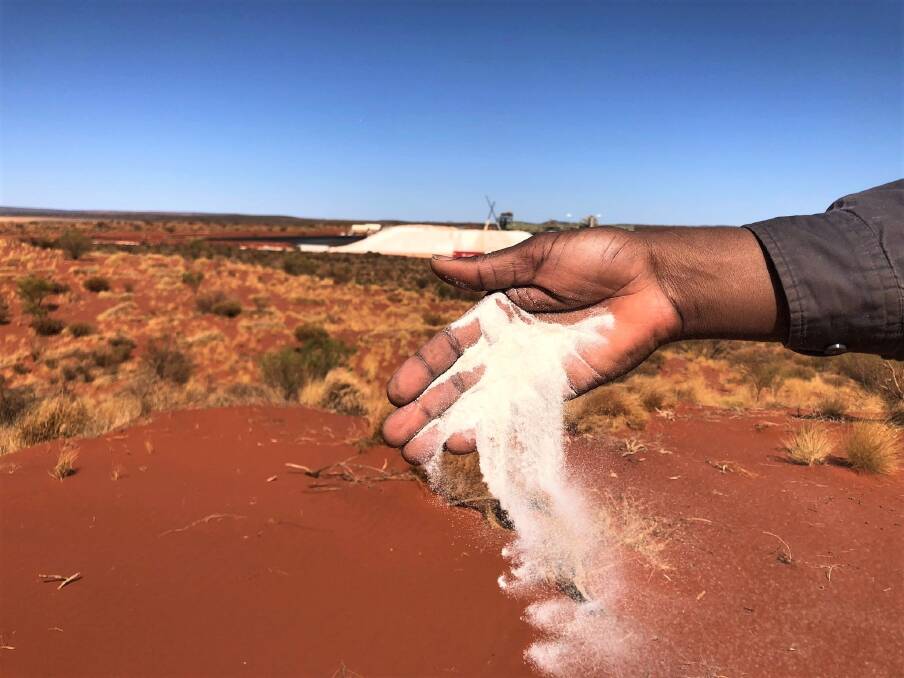FARMERS in areas of Western Australia affected by rising salinity should have access to locally produced premium Sulphate of Potash (SoP) fertiliser when preparing the ground for next season's crops.
While pricing of local SoP fertiliser has not yet been revealed, it is expected to be particularly competitive against next year's estimated average standard-grade imported SoP CFR (cost and freight) price of US$617 a tonne ($844/t at current exchange rates) landed in Australia.
Production cost of SoP premium powder fertiliser at the Kalium Lakes Ltd (KLL) Beyondie project, which uses hypersaline brine from a chain of salt lakes in the Little Sandy Desert 160 kilometres south-east of Newman as its raw material, is expected to be in the first quartile by global standards.
Also, SoP fertiliser's local market price for the first time will not include shipping costs - currently between US$150/t and US$200/t ($205-$273/t), depending on where the imported product is coming from.
Until now, all of the up to 63,000t of SoP used in Australia each year has been imported and its cost has generally limited its use to intensive farming systems with high-value vegetable, fruit and nut crops.
But KLL's landmark Australia-first production of a batch of SoP this month during product commissioning of its $280 million Beyondie project has the potential to change that.
A convoy of trucks being loaded with raw harvest salts at the end of the evaporation ponds chain in the background where the salts are concentrated. The truck convoy carts harvest salts to be stockpiled next to the processing plant which is built off the salt lakes.
WA SoP fertiliser being commercially available locally before the end of the year - KLL has a 10-year offtake and distribution agreement with global fertiliser giant K+S covering all domestic and export markets - could see it more competitively priced against the widely used potassium fertiliser alternative, Muriate of Potash (MoP).
The advantage SoP has over MoP, particularly for use in saline affected areas such as up to a quarter of WA's Wheatbelt, is that it does not add more salt to the soil.
KLL told the Australian Securities Exchange last week its first premium SoP produced during commissioning had achieved the required product specifications.
Commercial production ramp up will follow performance testing and the offtake agreement with K+S will be activated before the end of the year, it said.
"Kalium Lakes has delivered another major milestone for the Beyondie SoP project, producing its first SoP seven years after the company was founded in September 2014," said KLL chief executive officer Rudolph van Niekerk.
"It has been a remarkable journey to reach this stage and we thank everyone who has contributed to the success of the project during the past seven years, particularly our long-term shareholders, management team and employees.
"We have always said that it was not a race and we were focused on getting it right rather than being first (to produce SoP fertiliser locally), but in the end we have been fortunate to achieve both."
KLL has said it expects to make its first sales into a "buoyant" SoP market with increasing average year-on-year prices forecast.
First SoP powder fertiliser produced outside a laboratory in Australia using hypersaline brine from beneath a chain of remote salt lakes as the raw material
The Mannheim method of converting MoP to SoP using high temperature and acid, which accounts for about half of all global SoP production, has been cut by five per cent in China - the main producer - because of rising MoP prices and tightening environmental regulation.
KLL said the Beyondie operation had a projected 50-year life, with the first 30 years based on 88 per cent of identified hypersaline brine reserves, with "significant additional expansion opportunity".
As previously reported in Farm Weekly, KLL is already planning to expand the project's capacity from 90,000t per annum to 120,000t/a which will require construction of an extra primary evaporation ponds train and an extra recycling ponds train.
Additional production bores and minor upgrades to other parts of the process to accommodate the increased annual capacity have already been made.
KLL was founded by former helicopter muster pilot turned Pilbara cattleman and Newman business entrepreneur Brent Smoothy after he realised the potential for SoP fertiliser production from salt lake brine while quizzing geologists as he flew them out to what became the Roy Hill iron ore mine site in his helicopter.
He recognised salt lakes on the Beyondie station pastoral lease he held at the time might be potential SoP targets.
KLL is one of at least six Perth-based companies at various stages of developing SoP projects based on remote salt lakes in WA, with the aim of cashing in on a foreseen improvement in world demand for SoP to drive increased food production to keep pace with global population growth as supply from existing sources reduce.
First batch of local SoP for new season - Farm Weekly
Read More


No comments:
Post a Comment